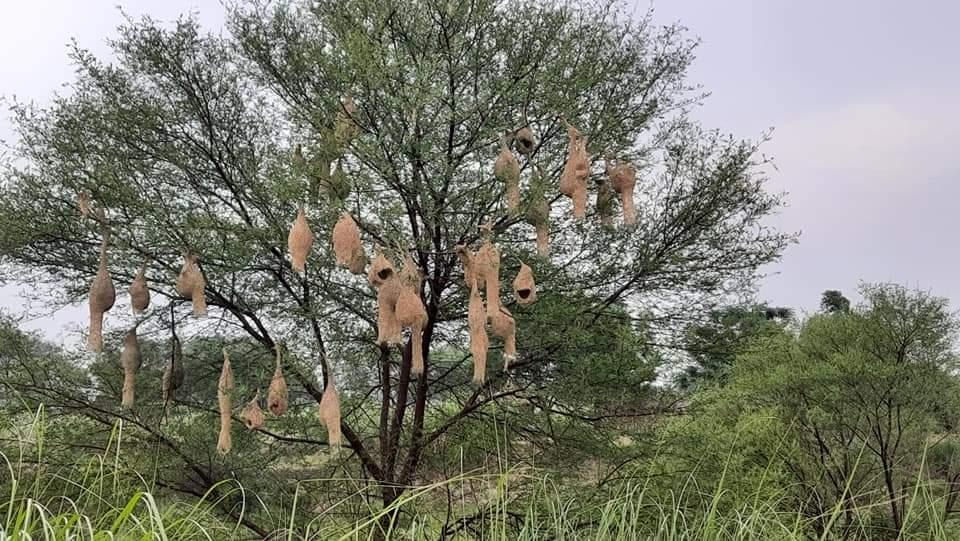Bonn Climate Talks (SB60) Sets Stage for COP29
- Smruti
- Jun 29, 2024
- 3 min read
Its a mixed bag of progress..
Image Courtesy: Author
The recent Bonn Climate Negotiations, officially known as the 60th sessions of the Subsidiary Body for Implementation (SBI) and the Subsidiary Body for Scientific and Technological Advice (SBSTA) (SB60), delivered a mixed bag of outcomes. While progress was made on technical discussions about adaptation and mitigation strategies, a major sticking point remains: climate finance.
Stalemate on Climate Finance Threatens Progress
Developed countries continue to fall short of the $100 billion annual target set by the Paris Agreement, leaving developing countries frustrated and struggling to access critical funding for climate action. Negotiations are underway to establish a new "collective quantified goal" (NCQG) to replace the $100 billion target after 2025. However, significant disagreements persist regarding the amount and type of funding.
Developing countries' demands: Trillions of dollars annually, with a focus on public funds from developed nations and addressing climate debt.
Developed countries' approach: A broader approach that includes private sector investments and expanding the donor base to include wealthy developing countries. They also resist specific financial targets, citing concerns about changing governments disrupting climate finance plans.
These contrasting perspectives remain a major speedbraker for progress on other fronts. Resources from https://climatenetwork.org/updates/press-releases/ (Climate Action Network) highlight the frustration of developing countries and the urgency for a solution.
Adaptation Efforts: Inchworm Progress with Hiccups
A framework for adaptation efforts, the Global Goal on Adaptation (GGA), was agreed upon at the previous conference, which creates a foundation for roadmap. However, discussions on practical implementation, particularly measuring progress on adaptation, stalled due to disagreements over financial indicators:
Developing countries' stance: Funding to be a core metric, as access to finance is crucial for implementing adaptation strategies.
Developed countries' resistance: Specific financial targets are avoided, focusing on equity and shared responsibility for adaptation.
A compromise acknowledging this was reached, but further discussions are needed to establish a clear methodology for tracking progress. Delays in receiving financial support for National Adaptation Plans (NAPs) further hinder developing countries' ability to plan and implement effective adaptation strategies.
Image Courtesy: Author
Mitigation: Unresolved Issues on Fossil Fuel Transition
No agreement was reached on draft conclusions for the Mitigation Ambition and Implementation Work Programme (MWP). The focal point here is whether the program should address the global stocktake call for a shift away from fossil fuels.
Developed countries' stance: The MWP should reflect the stocktake outcomes, emphasizing the need for ambitious mitigation efforts.
Developing countries' resistance: New targets or burdens are seen as hindering their development.
This highlights the ongoing tension between ambitious climate action and concerns about economic development in fossil fuel-dependent countries.
Just Transition Work Programme: A Stalled Engine in Need of Spark
Disagreements regarding the focus of the Just Transition Work Programme (JTWP) resurfaced at Bonn.
Developed countries see JTWP as job-centric: Focusing on creating jobs in the clean energy sector during the transition away from fossil fuels.
Developing countries advocate for a broader view: Encompassing social justice and environmental sustainability to ensure a just transition for all stakeholders.
Additionally, no concrete work plan was agreed upon, highlighting the need for stronger leadership and compromise from the developed nations. A more inclusive approach that addresses the concerns of all stakeholders is crucial for ensuring establishment of just transition.
Looking Ahead: A Critical COP29 in Azerbaijan
Despite the limited progress in Bonn, the fight against climate change continues. The upcoming COP29 in Azerbaijan, a major fossil fuel producer, presents unique challenges and opportunities. Hence, securing a new global climate finance goal and fostering international cooperation on a larger scale will be critical for the conference's success. Concerns surrounding Azerbaijan's role in the fossil fuel industry underscore the urgent need for a genuine commitment to a clean energy transition.
Conclusion: Building Momentum for COP29
The Bonn Climate Talks (SB60) served as a crucial stepping stone towards COP29. While progress was limited, technical discussions advanced, and the urgency of addressing climate finance was reiterated. Bridging the gap between developed and developing countries on financing will be essential for a successful COP29. Strong leadership, increased ambition, and a commitment to a just transition are critical to achieving a more sustainable future for all.
(This article presents the author's analysis and insights on the The Bonn Climate Change Conference (SB60) and not those of the publisher.)
Image Courtesy: Author
Resources:
From the UNFCCC website (https://unfccc.int/news/bonn-climate-conference-closes-with-progress-on-key-issues-laying-groundwork-for-cop28)
Carbon Brief (https://www.carbonbrief.org/bonn-climate-talks-key-outcomes-from-the-june-2023-un-climate-conference/) provide further details on the discussions and challenges at SB60.
About the Author
Vikrant Srivastava is a Climate Reality Leader, who is actively following the progress of all COP editions. He is a youth voice for sustainable planet.
































That is really attention-grabbing, You’re a very professional blogger.I’ve joined your feed and sit up for in quest of more of your wonderful post.Additionally, I have shared your site in my social networks
شيخ روحاني في برلين 00491634511222
شيخ روحاني
شيخ روحاني
شيخ روحاني في برلين
شيخ روحاني 00491634511222
الشيخ الروحاني
شيخ روحاني في برلين 00491634511222
Berlinintim
bestbacklinks
backlinkservices
buybacklink
BERLINintim
شيخ روحاني شيخ روحاني شيخ روحاني سعودي جلب الحبيب جلب الحبيب جلب الحبيب شيخ روحاني مضمون جلب الحبيب Berlinintim casinoberlinBerlinintimجلب الحبيب جلب الحبيب جلب الحبيب جلب الحبيب جلب الحبيب جلب الحبيب جلب الحبيب جلب الحبيب جلب الحبيب جلب الحبيبجلب الحبيبجلب الحبيب جلب الحبيب جلب الحبيب جلب الحبيب. ايات لجلب الحبيب العنيد . عظم الهدهد سريع الجلب للنساء . السحر المغربي لجلب الحبيب بالصورة . سورة…
situs toto
toto slot
situs toto
toto slot
slot gacor
slot gacor
ts77casino
slot dana
slot pulsa
slot qris
toto togel
togel online
situs gacor
BACAN4D
slot88
gacor777
slot777
slot toto
link slot toto
link alternatif slot gacor
situs slot gacor
situs slot
situs slot online
info situs slot gacor
slot gacor
slot gacor hari ini
slot gacor terkini
slot gacor malam ini
info slot gacor
link slot gacor
daftar slot gacor
login slot gacor
slot mahjong
slot maxwin
scatter hitam
pgsoft slot
slot pgsoft
slot toto
slot togel
slot88
slot 4D
toto 4D
togel 4D